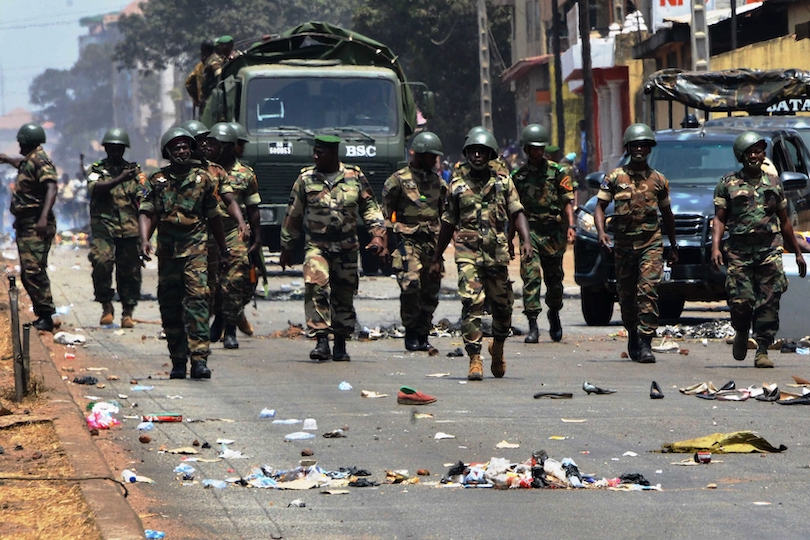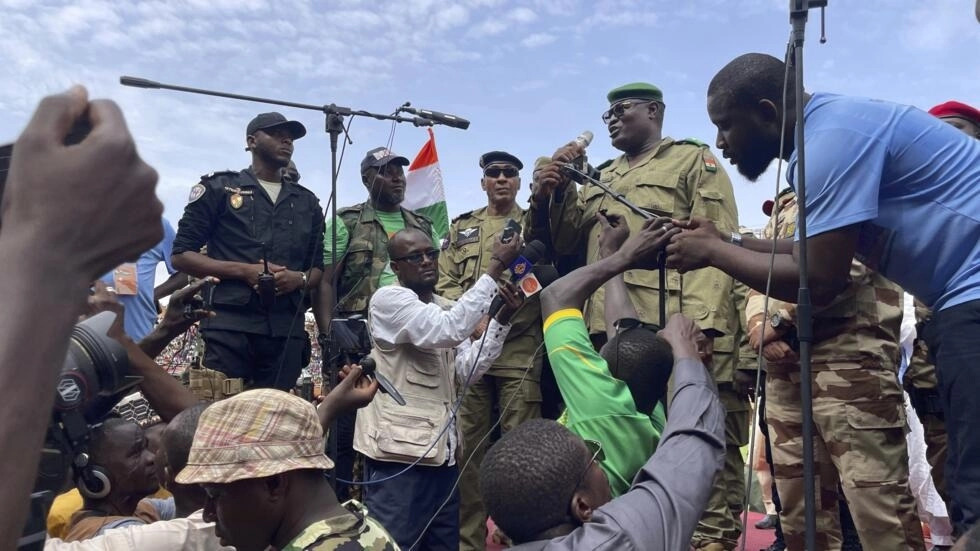What is a coup?
A coup, or “coup d’état,” is a sudden, illegal, and often violent overthrow of a government or ruling authority by a group of individuals, typically within the same country’s military, government, or other state institutions. A coup aims to replace the existing government with a new leadership or to seize control.
Coup attempts can take various forms, such as a military coup, where the armed forces or a faction within the military tries to seize power, or a civilian coup, where non-military groups, politicians, or officials attempt to overthrow the government. Coups can be motivated by various reasons, including political, ideological, economic, or personal interests.
A successful coup can lead to significant political and social upheaval, affecting the stability and governance of the affected country. International organizations and the global community often view coups as violations of democratic principles and may impose sanctions or express disapproval in response to such actions.
What happened in Niger?

On 26 July 2023, a coup d’état was staged in Niger and the country’s president was detained by a faction of the presidential guards. General Abdourahamane Tchiani, commander of the presidential guards since 2011, declared himself as the head of the transitional government and announced the formation of a military junta – National Council for the Safeguard of the Homeland.
This was the fifth military coup since the country gained independence from France in 1960, and the seventh in West and Central Africa since 2020, with the most recent ones being in neighbouring Burkina Faso, Mali and Guinea.
Even though the President, Mohamed Bazoum, refused to resign while detained at the Presidential Palace in Niamey (capital of Niger), the military junta suspended the constitution and deposed the existing government regime.
In a take-over speech by Colonel-Major Amadou Abdramane, he mentioned that “continuous deterioration of the security situation, the bad social and economic management,” by the government led to the coup. Analysts also presume that the rising cost of living and perceptions of government incompetence and corruption may have driven the revolt.
Colonel-Major Abdramane also announced the closure of the country’s land and air borders. A nationwide curfew was imposed from 2200 hrs until 0500 hrs local time.
What was the impact?
The US Embassy in Niamey advised its nationals to avoid non-essential travel and avoid travelling along Boulevard de la Republique in Niamey, until further notice. It also announced the suspension of all commercial flights to and from Niamey until at least August 5, 2023. Other foreign diplomatic missions in Niger, including the UK, France and Netherlands, to name a few, also issued similar advisories to their citizens.
Despite a ban on all political activities, pro-government and pro-coup rallies were reported in Niamey, near the Presidential Palace, the National Assembly, and other cities such as Dosso.
On 30 July, ECOWAS (Economic Community of West African States) imposed additional restrictions and strict sanctions including a no-fly zone, the closure of borders with Niger, suspension of all commercial and financial transactions between the ECOWAS member states (Benin, Burkina Faso, Cabo Verde, Cote d’Ivoire, The Gambia, Ghana, Guinea, Guinea-Bissau, Liberia, Mali, Nigeria, Senegal, Sierra Leone, and Togo) and Niger and freezing of assets in regional central banks. ECOWAS had also issued an ultimatum to release and reinstate President Bazoum within one week.
Following this, thousands of Nigeriens in support of the coup gathered outside the French Embassy in Niamey and vandalized its premises. Security personnel resorted to firing tear gas to disperse the crowd.
It was also reported that Colonel Major Abdramane banned the use of social media and possibly other telecommunication services.
On 1 August, coup leaders announced the reopening of land and air borders with Algeria, Burkina Faso, Mali, Libya and Chad. Borders with Benin and Nigeria remain closed. The curfew hours were also reduced to 0001-0500 hrs local time. Foreign Ministries of the US, France, Italy, Spain, and other European countries began evacuating citizens and embassy staff from the country, impacting consular services.
What does the future look like?

Amid the expiration of the deadline set by ECOWAS to reinstate the President, on 6 August, the coup leaders announced an indefinite closure of Niger’s airspace in anticipation of international military intervention.
Due to the airspace closure several European airlines are facing disruptions as a result of rerouting and increased flight times. As per FlightRadar24, flights to and from the African continent are being cancelled or diverted to other countries to avoid Niger’s airspace. Air France suspended all flights to and from Ouagadougou in Burkina Faso and Bamako in Mali until 11 August. Longer flight times are likely from sub-Saharan hub airports. Flights between South Africa and London are also among the impacted.
Countries including the US, UK, France, Netherlands, Ireland, Australia, New Zealand, Canada and several others have updated their travel advisories for Niger to ‘Do not travel’ due to the ongoing political instability and rising diplomatic tensions.
As of 8 August, diplomats continue to engage in negotiations with the coup leaders, however, the outcome and next planned steps remain unclear and unverified. Analysts predict strained diplomatic relationships with the West and also a possible increase in violence and insurgency, similar to Burkina Faso and Mali. An indefinite border closure may also lead to a scarcity of essential resources in Niger.



